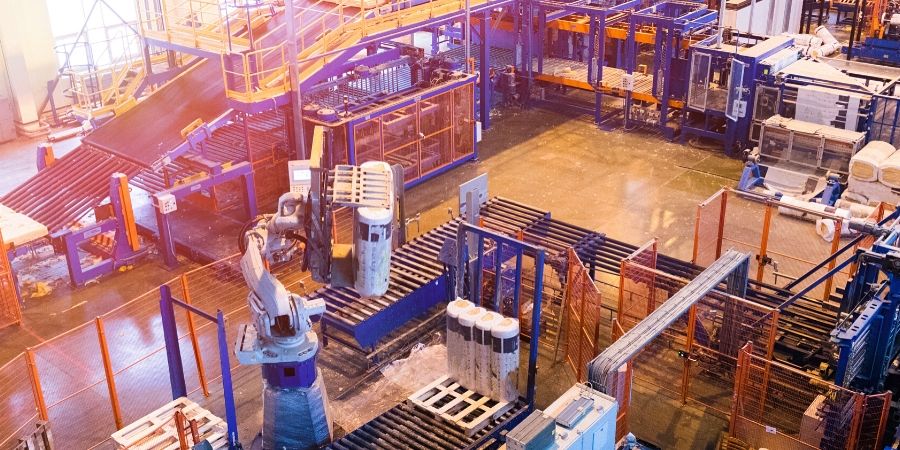
These are uniquely challenging times for manufacturers. Though digital technology has penetrated the sector for over 50 years, it has previously come in manageable increments -- disruptions, yes, but minor.
As we enter the Fourth Industrial Revolution, otherwise known as Industry 4.0, manufacturing companies—which traditionally deal with physical things—must undergo a full-scale digital transformation from the ground up. This transformation is partially to keep up with competitors quicker off the mark, partially to meet digitized consumer demand, and partially to help overcome demographic obstacles. But challenges are made to be met and pathways are already emerging. This piece examines the current state of and challenges in manufacturing, as well as the emerging solutions.
Today’s consumers have been trained to expect even greater levels of customization in ever shorter time frames. Meeting that demand is one of the principle challenges facing manufacturing companies today. As experienced industrial workers with the expertise to adapt to a more challenging environment are retiring from the workforce, inexperienced operatives are left to tackle a constant churn of new procedures and swelling product variations.
The benefits of creating and executing a digital transformation strategy include efficiency, productivity, and profit across your business. By streamlining part of, or the entire operation, companies are reducing downtime and costs while increasing workforce productivity. Industry 4.0 is reshaping manufacturing industries through enterprise-wide connectivity.
Two-thirds of manufacturing CEOs say they’re ready and willing to lead their companies through a digital transformation, but there are significant obstacles along the way. Many manufacturing companies find it difficult to envision the unfamiliar process of digital transformation from start to finish, so the ambiguity poses as a risk to manufacturers.
Digital transformation or Industrial IoT implementations can be expensive, and stakeholders often expect fast returns on what are admittedly large-scale capital investments; however, results may not be immediate, so it is essential to build quick wins into the long-term strategy or risk losing support within the company.
PTC is surging ahead to empower manufacturing companies to take on a digital transformation, implementing key technologies that deliver quick wins and lay the foundations for greater change further down the line. The key is to start small, prove the concept, and scale up. In taking this approach, manufacturers prepare themselves for whatever digital transformation might look like in a decade, while reaping stakeholder-pleasing benefits now. Below are a few (brief) examples of the digital transformation solutions PTC is implementing for manufacturing companies now.
IIoT-enabled analytics give manufacturing companies detailed, real-time insights into performance across the enterprise. This includes everything from asset health to workforce productivity and energy monitoring. Users can drill down into imbalances between work shifts, underperforming machinery, and sub-optimal processes, yielding efficiency gains of 5-8%.
Immersive augmented reality (AR) content is helping manufacturing companies to close the industrial skills gaps and respond to increased product complexity. Intuitive digital work instructions—delivered step-by-step in displays overlaid onto the actual machinery—enable workers to execute new processes perfectly first time; and minimize slowdowns from production handovers as well as reduced scrap.
Unscheduled downtime is the bane of ever-tightening production deadlines. A potent mixture of IIoT-enabled real-time machine monitoring, predictive analytics and AR can all but eliminate it.
Real-time machine monitoring delivers a constant feed of data for big data analysis, enabling manufacturing companies to identify the second an asset begins to perform out-of-spec so it can be scheduled for preventative maintenance at a convenient time.
Over-the-shoulder AR assistance—where a remote expert shares the view of an on-site operative, complete with real-time metrics—means many faults can be repaired by operatives themselves, without having to wait for a technician.
The increased agility required by accelerating demand cycles can’t be matched by traditional processes. Granular analytics enable users to identify production bottlenecks, compliance issues, and quality variations so every area of production can be continually optimized. The key to this solution is scalability. The end goal is comprehensive automated data collection across the entire factory floor. But that can be started with one single troublesome area, acting as proof of concept before scaling up elsewhere.
These solutions are already active at plants across the country. To find out more—and to read the inspiring story of how Volvo Group is connecting the entire enterprise with a digital thread — take a look at PTC’s Digital Manufacturing Solutions.
Leah Gourley is a Digital Content Marketing Specialist based out of PTC's Boston office. She enjoys creating and sharing content surrounding the latest technologies that are transforming industries, including augmented reality and the industrial internet of things.
©Copyright 2025. All rights reserved by Modelcam Technologies Private Limited PUNE.